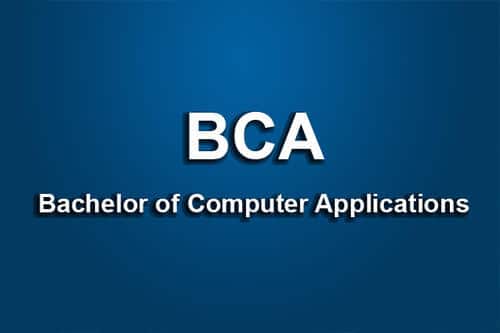The BCA full form, Bachelor of Computer Applications, equips students with the technical and managerial skills necessary to thrive in the tech-driven business world. With a surge in startup culture globally, BCA graduates have ample opportunities to leverage their academic learning to create innovative solutions, develop businesses, and contribute to the economy.
This article delves into how BCA students and graduates can harness their education to start a successful business. It also provides actionable steps, entrepreneurial insights, and answers to frequently asked questions.
The Role of BCA in Entrepreneurship
A BCA degree provides a comprehensive understanding of:
- Technical Skills: Proficiency in programming languages, databases, and software development.
- Problem-Solving Abilities: Analytical thinking to devise solutions for real-world challenges.
- Project Management: Learning to manage resources, timelines, and teams effectively.
- Business Insights: Subjects like management and entrepreneurship that form a bridge between technology and business.
These core competencies are invaluable for anyone aspiring to become an entrepreneur.
Why Start a Business After BCA?
1. Growing Demand for Tech Solutions
In the digital era, every industry needs technological innovations. Startups focusing on software development, app creation, or IT consultancy have high growth potential.
2. Access to Resources and Knowledge
As a BCA graduate, you have access to technical expertise and resources such as programming tools, cloud computing platforms, and online learning sites.
3. Lower Entry Barriers in Tech
Starting a tech-based business often requires fewer resources than traditional industries. A great idea, technical know-how, and a laptop can lay the foundation.
4. Startup Ecosystem Support
Governments and private organizations now provide funding, mentorship, and incubation support for tech startups.
Steps to Start a Business After BCA
Step 1: Identify Your Niche
Choose a niche where your skills and interests align. Popular options include:
- App development
- Web development
- E-commerce solutions
- IT consultancy
- AI and machine learning services
Step 2: Research the Market
Understand the market trends, competitors, and customer needs. Use tools like:
- Google Trends: For analyzing trending topics.
- SEMrush: For competitor research.
- Statista: For market statistics.
Step 3: Build a Business Plan
A robust business plan includes:
- Vision and Mission: Define the purpose and goals of your startup.
- Target Audience: Identify your ideal customers.
- Revenue Model: Detail how you will make money (e.g., subscription fees, ads, or direct sales).
- Financial Projections: Estimate expenses and expected income.
Step 4: Develop Technical Prototypes
For tech businesses, a functional prototype or minimum viable product (MVP) is essential.
- Tools to Use:
- Figma for UI/UX design.
- GitHub for version control.
- Firebase for backend services.
Step 5: Register Your Startup
Choose a business structure (LLP, Private Limited, etc.) and register your startup under local laws.
Step 6: Secure Funding
Funding options include:
- Bootstrapping: Using personal savings.
- Angel Investors and Venture Capitalists: For scalable startups.
- Crowdfunding: Platforms like Kickstarter or Indiegogo.
- Government Grants: Many governments offer financial support to startups.
Step 7: Build a Strong Team
Recruit individuals who complement your skills. Key roles may include developers, designers, marketers, and sales professionals.
Step 8: Market Your Business
Use digital marketing strategies:
- SEO and Content Marketing: Improve online visibility.
- Social Media Campaigns: Engage with your audience on platforms like LinkedIn and Instagram.
- Pay-Per-Click Advertising: For immediate reach.
Step 9: Scale Your Startup
As your startup grows, focus on scalability. This includes automating processes, entering new markets, and diversifying offerings.
BCA Alumni Who Succeeded in Business
1. Sachin Bansal and Binny Bansal
Co-founders of Flipkart, they revolutionized e-commerce in India. Their journey began with strong technical expertise and innovative ideas.
2. Deepinder Goyal
The founder of Zomato, he started with a tech-driven approach to solving food delivery problems.
These examples demonstrate how leveraging technical and business knowledge can lead to groundbreaking ventures.
Challenges of Starting a Business After BCA
- Lack of Experience: Fresh graduates may face challenges in management and strategic planning.
- Financial Constraints: Initial funding can be a hurdle.
- Competition: The tech market is saturated, requiring unique and innovative solutions.
- Scaling Issues: Growth demands efficient resource management and adaptability.
How to Overcome These Challenges
- Gain Experience: Work on internships or freelance projects during your BCA to build industry insights.
- Seek Mentorship: Join startup incubators or mentorship programs for guidance.
- Start Small: Begin with a niche market to establish a foothold.
- Keep Learning: Stay updated with courses on platforms like Coursera and Udemy.
FAQs About BCA Full Form and Startups
1. What is the BCA full form, and how does it relate to startups?
The BCA full form is Bachelor of Computer Applications. It provides technical and managerial skills, making it an ideal foundation for tech-based startups.
2. Can a BCA student start a business while studying?
Yes, many students launch startups during their studies by balancing academics and work efficiently.
3. What industries can BCA graduates target for startups?
Industries like IT services, e-commerce, healthcare technology, and AI are excellent choices for BCA graduates.
4. Is funding necessary to start a business after BCA?
While funding accelerates growth, many startups begin with minimal resources and bootstrap initially.
Conclusion
The BCA full form, Bachelor of Computer Applications, is more than just an academic degree; it’s a gateway to entrepreneurship. By combining technical knowledge with business acumen, BCA graduates can build impactful startups that solve modern challenges.
With a clear vision, proper planning, and the use of online resources, starting a business after BCA is not only achievable but also rewarding. The journey might be challenging, but the rewards of building your venture are worth the effort.



